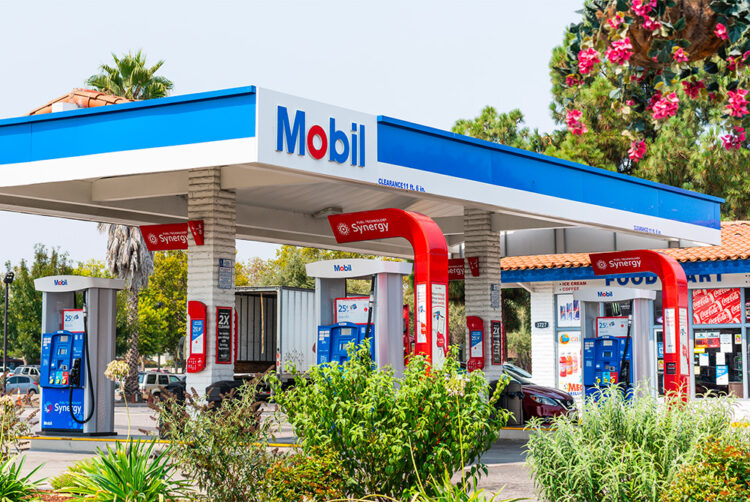Dentsu and IPG Mediabrands have been announced as new members of the Conscious Advertising Network, despite the latter’s well-publicised media-buying activity for fossil-fuel companies like Saudi Arabia’s Aramco.
In September, the pressure group Clean Creatives produced an “F-List” that named media agency groups, including IPG, for working with fossil fuel companies and “erasing” mentions of them from their websites. Climate Creatives sought to name and shame 239 agencies who worked with fossil fuel companies.
This included IPG Mediabrands’ UM for having client contracts with ExxonMobil, AGL, and Statoil, and Aramco. Mediabrands also created a bespoke client agency for Aramco, the state-owned oil producer for Saudi Arabia, called Well7.
“We are under no illusions about the limitations of CAN,” the Conscious Advertising Network’s co-founder Jake Dubbins told The Media Leader.
He said: “In order to fix the problems of hate and misinformation, we need to have a big tent. Just getting the indies, or those without fossil fuel clients to sign up would not have the large-scale impact we need to have. It’s not a comfortable trade off for us, but we do need to create action within organisations that have the power to make this change.
“Five years ago, hate and misinformation were not being widely discussed in the advertising industry. Now they are being considered at procurement and C-Suite level by some of the largest agencies and brands.”
The volunteer organisation was launched by Media Bounty founders Dubbins and Harriet Kingaby in 2019 with support from ISBA, the UK trade body representing advertisers and brand owners. There are now 150 organisations link with CAN’s vision to “ensure industry ethics catch up with the technology of modern advertising.”
What do CAN members do once they’re in?
As part of CAN membership, companies must abide by seven manifestos, which cover hate speech, misinformation, diversity and inclusion, children’s wellbeing, informed consent, advertising fraud and climate and sustainability.
On sustainability, the manifesto compels members to not create ads and content that “perpetuate harmful stereotypes or engage in other forms of misinformation like greenwashing”.
Members must also regularly complete a manifesto tracker which demonstrates how companies are not consciously spending money on hate speech or outright climate denial.
Kingaby told The Media Leader that the organisation wants to “improve on that [self-reported information gathering] a lot”, but stressed that this had the added benefit of getting individuals within organisations to effect change internally.
CAN also has “regular” discussions with its members about compliance that frequently leads to organisational change. It also carries out advocacy work, such as public-service announcements about stopping advertising-funded hate speech as well as climate disinformation, and accepting platforms to speak at the European Union and the United Nations.
Dubbins said: “On greenwashing, we have worked with 18 NGOs to craft a universal definition of climate misinformation that has been endorsed by business and climate leaders at COP27. This definition is in our climate and sustainability manifesto and is also aligned with the Competition & Markets Authority’s green claims code as well as the recent ASA rulings on greenwash.”
In September 2022 the campaign group Clean Creatives reported 239 advertising and media agencies had “recently” worked with fossil-fuel companies. The group’s report was widely covered in national newsbrand media as well as the advertising and media trade press.
“The vast majority of this work is not shared via agency channels or with clients whose work may be affected by greenwashing claims by oil companies,” the report said.
With regards to IPG Mediabrands, Clean Creatives said: “At least 17 agencies are working for Saudi Aramco, the world’s largest polluter, including a previously undisclosed Interpublic Mediabrands agency, Well7. Interpublic agencies McCann, UM, and Jack Morton have also led substantial work for Aramco, with all holding companies having some connection to the world’s largest oil company and funder of human rights abuses.”
Erika Foster, director, standards & investment products at IPG Mediabrands agency Magna, said: “Mediabrands has been committed to driving industry accountability and powering responsible advertising investment through the publication of our Media Responsibility Index for a number of years. We are proud to continue this commitment by joining like-minded advertisers, agencies, tech providers and our wider community as a CAN member. We look forward to pioneering ongoing change within the industry and driving awareness of CAN’s important manifestos amongst our world-class clients”.
Meanwhile, Dentsu is building on an existing relationship to expand its membership and become a global member of CAN. Two of Dentsu’s agencies, Merkle and gyro, have been members of CAN since the coalition’s launch. The wider holding company, which includes media agencies Carat and iProspect, has joined CAN to support its 2030 Social Impact strategy.
Dentsu agencies were also named by Clean Creatives for working for oil and gas companies: Carat (Alinta Energy), Dentsu Creative (Bangchak, Chevron, Indian Oil, Petrobas Distributores, TotalEnergies), and iProspect (Ampol, Australian Gas Networks).





